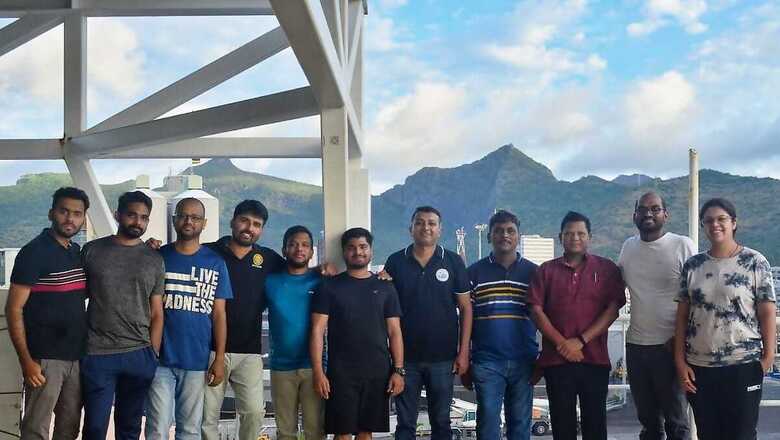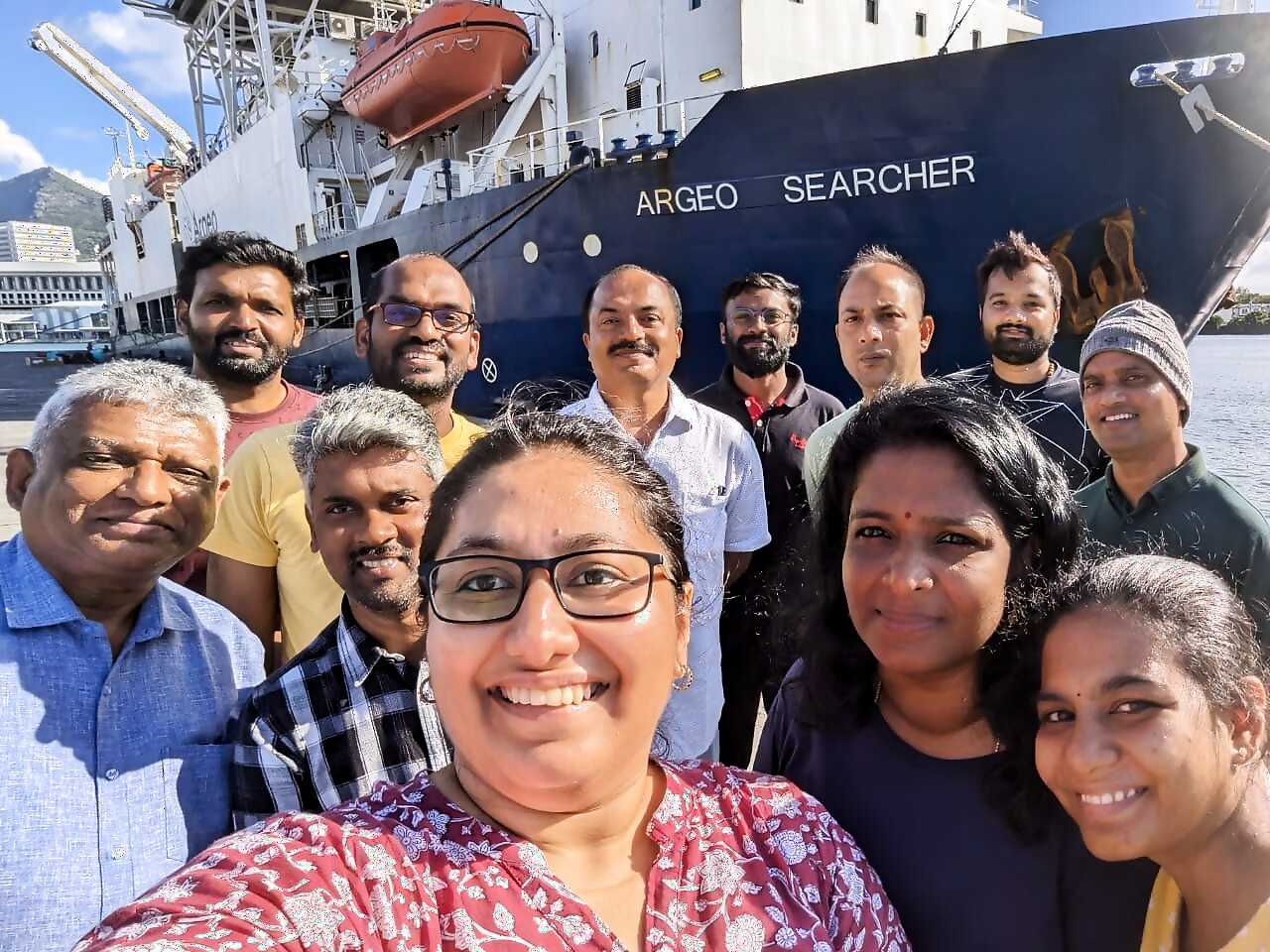
views
Norwegian Research Vessel (RV) Argeo Searcher has set sail for the central Indian Ocean with a group of 12 Indian scientists on board in search of precious mineral deposits on the ocean floor. The month-long expedition is part of the government’s ambitious Deep Ocean Mission valued at Rs 4,000 crore.
The team led by Goa-based National Centre for Polar and Ocean Research (NCPOR) will spend a month at sea surveying the 15 selected sites where scientists expect to find polymetallic sulphide deposits. These are sources of critical minerals like Copper, Nickel, Zinc and Manganese, and are found around naturally-existing Hydrothermal Vents in the deep sea.
“We have remotely detected 15 of these vents through our 2016 survey data. But we do not know their exact location or size, which could be anywhere between 6 to 10 kms in diameter. Our goal is to obtain this precise data because it will be necessary for mining these minerals in near-future. This is the third leg of the expedition this year,” says John Kurien P, senior scientist leading NCPOR’s deep sea exploration program.
Hydrothermal vents are formed in the sea-bed where the tectonic plates collide and produce fractures where seawater percolates down. However, the magma within the ocean crust superheats the water, causing it to re-surface as mineral-rich fluid vents. Scientists recognise such vents by hot water plumes that rise several hundred metres above the sites.
A SPECIALISED UNDER-WATER VEHICLE
The exploration will be carried out using a specialised Autonomous Underwater Vehicle (AUV) — Hugin Superior — which will be dropped into the sea. It will dive nearly 4,000 metres deep very close to the seabed and scan the site, capturing high-resolution images. The robotic underwater vehicle has a suit of geophysical and electromagnetic sensors on board to collect a treasure trove of data.

With a battery life of nearly 60 hours, it will remain underwater for two days at a time, and then be brought to the sea-surface. The Indian delegation will be assisted by a team of 21 staff members from the Norwegian firm operating the ship.
Deep-sea exploration has gained pace as countries race against each other to explore rich massive mineral deposits which are likely to have huge commercial as well as strategic value in the near future.
“The terrestrial mineral deposits are getting depleted at a rapid pace, and there will come a time when we’ll have to depend on marine resources. Also, the demand of these critical minerals will grow exponentially over the 20-30 years, as we switch to green energy and battery storage. So it’s important that we conduct this exploration now,” says Dr Kurien.
Rs 4,000 CR DEEP OCEAN MISSION
India has two contracts with the International Seabed Authority (ISA), and it has secured rights of exploration to look for potential sites of polymetallic sulphides (PMS) in the 10,000 sq km area in international waters of the central Indian Ocean.

The initial exploration began in 2016 with basic geological surveys, which enabled scientists to zero down on nearly 15 sites where they could do deep-ocean studies. Last year, the NCPOR had sought global tenders for an AUV and a specialised ship with a sufficiently experienced crew to conduct the near-seabed survey. The contract was awarded to the Norway-based offshore service company Argeo which is now enabling the expedition.
“This is just the beginning. We would like to conduct more exploration work to develop 3D models of these vent sites. Once we have the required data, then we can consider ways to sample it. It’s a long journey ahead,” Dr Thamban Meloth, Director, NCPOR, had told News18 earlier.


















Comments
0 comment